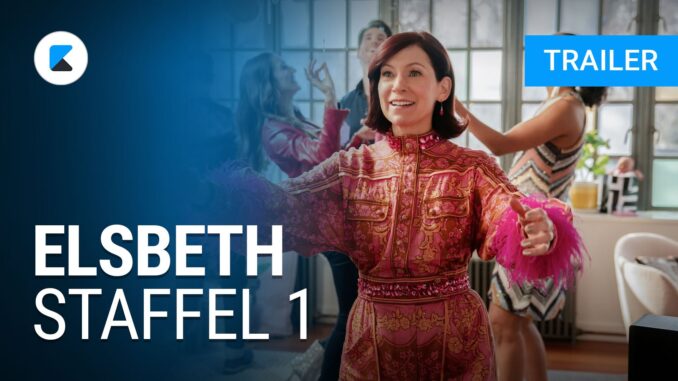
Elsbeth Tascioni: An Accidental Revolutionary Redefining the Female Criminal Lawyer
Elsbeth Tascioni, the titular character of the CBS drama “Elsbeth,” isn’t your typical hard-nosed, power-suited female criminal lawyer. She’s not Olivia Pope orchestrating narratives from the shadows, nor is she Alicia Florrick battling personal demons in the cutthroat world of Chicago law. Instead, Elsbeth is an almost deceptively unassuming figure, a “humble observer” whose disarming charm and quirky eccentricities mask a razor-sharp intellect and a profound understanding of human nature. Through her unique approach, Elsbeth redefines the archetype of the female criminal lawyer, not by smashing the glass ceiling with aggressive ambition, but by subtly dismantling the very foundations of expectation.
Traditionally, the portrayal of women in legal dramas, particularly within the high-stakes arena of criminal law, has often been characterized by a need to prove themselves. They’re often depicted as fiercely independent, driven by a need to succeed in a male-dominated field. This often translates to a tough exterior, a strategic ruthlessness, and a relentless pursuit of victory. Think of Annalise Keating in “How to Get Away with Murder,” a brilliant but emotionally guarded professor who demands unwavering loyalty from her students. While these characters offer complex and compelling narratives, they often perpetuate the idea that women need to adopt masculine traits to thrive in this professional sphere.
Elsbeth throws this paradigm out the window. Her strength doesn’t stem from mimicking traditionally masculine qualities; it resides in embracing her authentic self. She’s whimsical, forgetful, and possesses an uncanny ability to connect seemingly disparate dots. She approaches crime scenes with a childlike curiosity, noticing details that others overlook, often because they’re too busy adhering to established protocols. Her fashion sense is delightfully idiosyncratic, a far cry from the somber power suits that typically adorn female lawyers on screen. She carries a brightly colored umbrella, even on sunny days, a symbolic representation of her preparedness for the unexpected and her willingness to embrace the unconventional.
Her methods are equally unconventional. Instead of dominating interrogations with aggressive questioning, Elsbeth engages in disarming conversations, drawing information out of suspects through genuine curiosity and empathetic listening. She observes, she questions, she wanders, and she allows the truth to reveal itself organically. In a world obsessed with control and manipulation, Elsbeth trusts her intuition and embraces the chaotic nature of human behavior. This approach often confounds and frustrates her colleagues, but ultimately, it proves to be remarkably effective.
Furthermore, Elsbeth challenges the notion that female lawyers must sacrifice their personal lives for professional success. While her dedication to her work is undeniable, she’s not consumed by it. She values human connection and readily forms genuine relationships with the people she encounters, from the officers she works with to the eccentric residents of New York City. She embodies a more holistic approach to life, recognizing the importance of maintaining a sense of humor and finding joy in the everyday.
Elsbeth’s impact extends beyond the fictional world of television. In a society that often pressures women to conform to narrow definitions of success, she provides a refreshing alternative. She demonstrates that strength can manifest in unexpected ways, that vulnerability can be a superpower, and that authenticity is often the most effective weapon. She reminds us that there is room for different approaches, different perspectives, and different ways of being in a demanding profession.
In conclusion, Elsbeth Tascioni is more than just a quirky crime solver; she is a revolutionary figure in the landscape of female criminal lawyers. By embracing her unique qualities and challenging conventional expectations, she demonstrates that true power lies not in mimicking masculine traits but in celebrating individuality. She redefines the role by proving that empathy, intuition, and genuine connection can be just as effective, if not more so, than aggression and intimidation. Elsbeth teaches us that sometimes, the most brilliant legal minds are the ones who dare to see the world through a different lens, and that embracing one’s true self is the key to unlocking extraordinary potential. She is an accidental revolutionary, a humble observer, and a testament to the power of being unapologetically oneself. And in doing so, she paves the way for a new generation of female lawyers who dare to define success on their own terms.
